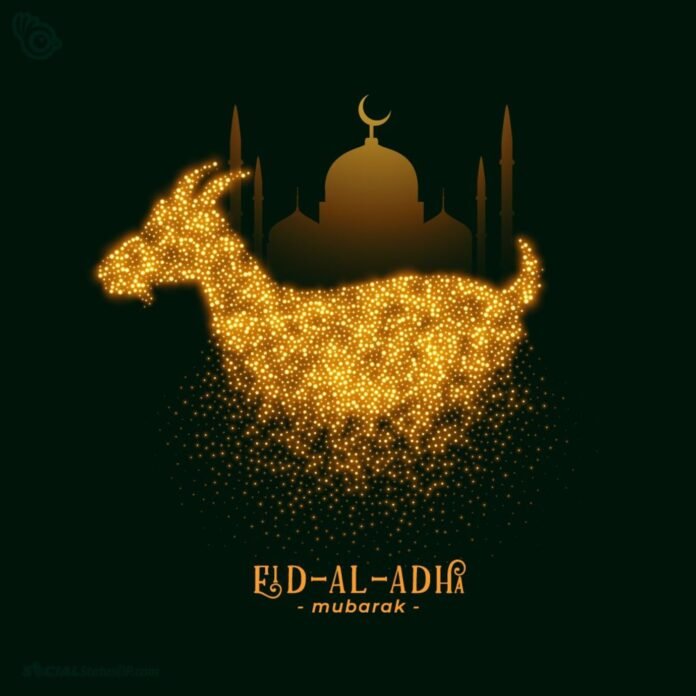Introduction:
Eid ul-Adha, also known as Bakrid, is a significant Islamic festival that holds immense religious and cultural importance for Muslims around the world. This joyous occasion commemorates the willingness of Prophet Ibrahim (Abraham) to sacrifice his son as an act of obedience to Allah (God). As the auspicious festival approaches in 2023, let us delve into the significance of Eid ul-Adha and understand the customs and traditions associated with this revered celebration.
Date and Observance:
Eid ul-Adha falls on the 10th day of Dhu al-Hijjah, the final month of the Islamic lunar calendar. In 2023, Bakrid is anticipated to be celebrated on a date determined by the sighting of the moon, marking the culmination of the Hajj pilgrimage. Muslims across the globe eagerly await this occasion to partake in prayers, exchange greetings, and engage in acts of charity and sacrifice.
Commemorating Prophet Ibrahim’s Devotion:
The core narrative behind Eid ul-Adha centers around Prophet Ibrahim’s unwavering faith and devotion to Allah. According to Islamic tradition, Allah commanded Ibrahim to sacrifice his beloved son, Ismail (Ishmael), as a test of his faith. As Ibrahim prepared to carry out the sacrifice, Allah replaced Ismail with a lamb, thus sparing his life. This act of divine intervention symbolizes the significance of obedience and trust in Allah’s plan.
Rituals and Traditions:
The festivities of Eid ul-Adha commence with Muslims attending special congregational prayers at mosques or designated prayer grounds. The sermon delivered during the prayer service emphasizes the values of sacrifice, compassion, and devotion. Muslims dress in their finest attire and exchange warm greetings, embracing the spirit of unity and harmony.
One of the most distinctive customs of Eid ul-Adha is the sacrificial offering known as Qurbani. Devout Muslims who can afford it sacrifice an animal, typically a goat, sheep, cow, or camel, following the example set by Prophet Ibrahim. The meat from the sacrificed animal is divided into three parts: one-third is distributed among the less fortunate, one-third is shared with family and friends, and the remaining third is kept for personal consumption.
Additionally, Eid ul-Adha encourages acts of charity, with Muslims encouraged to extend their generosity to those in need. Donating money, clothing, and food to the less fortunate is a significant aspect of this festival, promoting empathy and compassion within the community.
Celebrations and Feasting:
Eid ul-Adha is a time for families and friends to come together in celebration. Elaborate feasts are prepared, featuring traditional delicacies and dishes that vary across different cultures. Special sweet treats, such as sheer khurma (a vermicelli pudding), are savored to enhance the festive spirit. Visiting relatives and neighbors, exchanging gifts, and spreading joy and goodwill are integral parts of the celebrations.
Conclusion:
Eid ul-Adha, or Bakrid, exemplifies the essence of faith, sacrifice, and compassion in Islam. It is a time for Muslims worldwide to honor the legacy of Prophet Ibrahim and express their devotion to Allah. Through prayers, acts of charity, and the Qurbani sacrifice, Muslims come together to embrace the spirit of unity and generosity. As Eid ul-Adha 2023 approaches, let us celebrate this auspicious occasion with reverence and joy, cherishing the values it upholds and fostering goodwill among all.


